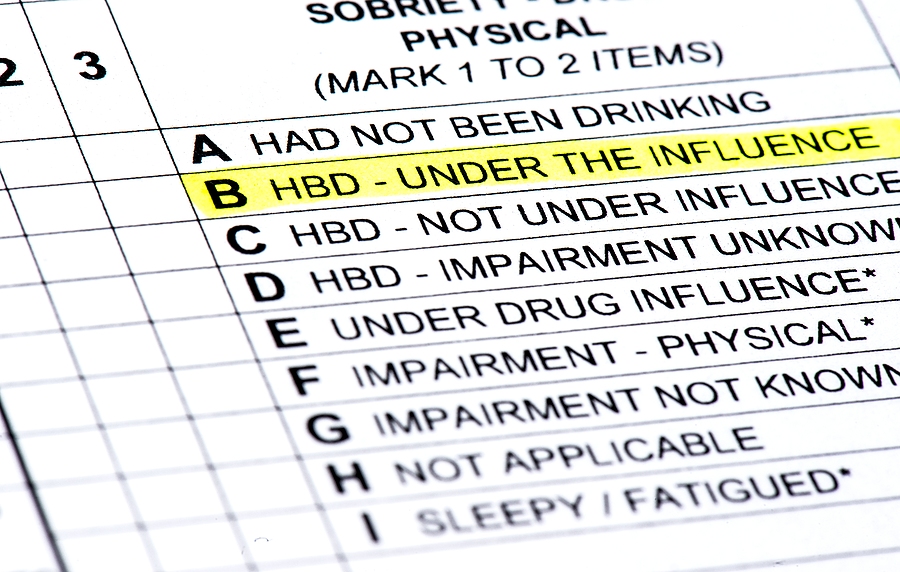The “Cite” of the Crime Podcast
CASE SUMMARIES
Federal 11th Circuit Criminal Case Law Update
The “Cite” of the Crime Podcast
CASE SUMMARIES
Federal 11th Circuit Criminal Case Law Update
The “Cite” of the Crime Podcast
CASE SUMMARIES
Florida Case Law Update (October 10, 2022 – October 15, 2022)
The “Cite” of the Crime Podcast
CASE LAW SUMMARIES
Federal 11th Circuit Case Law Update (October 3, 2022 – October 7, 2022)
The “Cite” of the Crime Podcast
CASE LAW SUMMARIES
Federal Criminal Case Law Update (September 26, 2022 – September 30, 2022)
The “Cite” of the Crime Podcast
CASE LAW SUMMARIES
Florida Criminal Case Law Update (September 26, 2022 – September 30, 2022)
The “Cite” of the Crime Podcast
CASE LAW SUMMARIES
Florida Criminal Case Law Update (October 3, 2022 – October 7, 2022)

When a person is pulled over for driving under the influence (DUI), the arresting officer will prepare a police report, summarizing the reasons behind the arrest. These reports are important when it comes to prosecuting a DUI case, and they can be helpful for defense attorneys in evaluating the case and determining a strong basis for a defense.
Why DUI Reports Are Valuable
Without DUI reports, the courts can only go off the testimony and viewpoint from the parties involved. Alone, DUI reports are not enough to be considered admissible evidence. The court will not accept the report by itself since the statements constitute hearsay, but the report gives both sides an idea of what the arresting officer would say when called to the stand. Having this information will allow the defendant to prepare a case and fight the charges. The arresting officer’s report can show if there are any weaknesses in the case, including their basis for probable cause in the arrest.

The United States Supreme Court recently issued an opinion in Denezpi v. United States that further expanded a government’s ability to prosecute individuals multiple times for the same conduct.
Generally, the Fifth Amendment to the Constitution prohibits the government from retrying an individual who has already been prosecuted for that same conduct. This is commonly referred to as the “Double Jeopardy” clause, which states, “[n]o person shall…be subject for the same offense to be twice put in jeopardy of life or limb.” This clause, among other things, prevents the federal government from retrying an individual who has been found not guilty of an offense. But it’s application is much more far reaching.
In Denezpi v. United States, the Supreme Court considered an interesting issue involving whether the federal government’s prosecution of an offense committed on tribal lands under tribal law precluded its prosecution of a federal offense under federal law under the Double Jeopardy clause. Mr. Denezpi committed a sexual assault on tribal land. His particular tribe took advantage of a longstanding court system called CFR courts where federal prosecutors exercise federal authority in prosecuting violations of tribal law. Most Indian tribes have established their own court system, but some tribes, mainly due to a lack of resources, still utilize CFR courts.
 It seems like every other day a new trend is emerging on Tik Tok. Some of them are harmless. Some of them are not. One emerging trend is called the “Orbeez Challenge,” where children, mostly teenagers, shoot a polymer bead at unsuspecting, innocent bystanders. While the shooter may think it’s funny and relatively harmless, the potential consequences may not be. The beads, shot at high speeds, can cause welts and potentially serious bodily injury. The potential for serious bodily injury could result in prosecution for Aggravated Assault with a Deadly Weapon, even if the intended target isn’t hit. Intended victims may have a concealed firearm and may fire back in perceived self defense. Arrest and/or death are very real and very probable outcomes from this challenge.
It seems like every other day a new trend is emerging on Tik Tok. Some of them are harmless. Some of them are not. One emerging trend is called the “Orbeez Challenge,” where children, mostly teenagers, shoot a polymer bead at unsuspecting, innocent bystanders. While the shooter may think it’s funny and relatively harmless, the potential consequences may not be. The beads, shot at high speeds, can cause welts and potentially serious bodily injury. The potential for serious bodily injury could result in prosecution for Aggravated Assault with a Deadly Weapon, even if the intended target isn’t hit. Intended victims may have a concealed firearm and may fire back in perceived self defense. Arrest and/or death are very real and very probable outcomes from this challenge.
For example, a ninth grader in North Carolina was hit in the eye by an Orbeez bead. Six teens were arrested in Utah for walking into a restaurant and shooting at diners. Three teens were arrested in New York for shooting people through the window of their car in drive-by shootings. In New Smyrna Beach, a seventeen year old was arrested for shooting a campus adviser from his vehicle. He was charged with battery on a school employee, which is a third degree felony. These are just some of the examples of teens getting arrested.
Another issue that most kids don’t think about is that they are responsible for the consequences of their actions, even if they didn’t intend the outcome. For example, if a teenager shoots an Orbeez pellet at a person driving a car and that person swerves into a tree and dies, the child could be charged with manslaughter. The child, and potentially the parents depending on their knowledge of the child’s possession of the Orbeez gun, could also be financially liable for damage or injury caused as the result of an Orbeez attack.
For example, if a teenager shoots an Orbeez pellet at a person driving a car and that person swerves into a tree and dies, the child could be charged with manslaughter. The child, and potentially the parents depending on their knowledge of the child’s possession of the Orbeez gun, could also be financially liable for damage or injury caused as the result of an Orbeez attack.
The Supreme Court handed down an important federal criminal law decision on March 7th, 2022 involving the interpretation of the “different occasions” language in the Armed Career Criminal Act. The Armed Career Criminal Act, 18 U.S.C. s.924(e), provides for a 15 year minimum mandatory sentence for any defendant convicted of possession of a firearm by a convicted felon if that defendant has three prior convictions for a violent felony or a serious drug offense, if those three prior offenses were committed on “occasions different from one another.”

In Wooden v. United States, the Supreme Court addressed what the term “occasions different from one another,” which is often referred to as the “different occasions” provision, means. In 1997, Wooden broke into a storage facility and burglarized ten different storage units. He was arrested and pled guilty to ten counts of burglary and was sentenced to eight years in prison. In 2014, Wooden answered the door to his house and a police officer asked to speak to his wife. The officer asked if he could step inside due to the chill outside and Mr. Wooden agreed. When the officer entered, he observed firearms in plain sight. The officer had previous knowledge that Mr. Wooden was a convicted felon so he arrested Mr. Wooden for Possession of a Firearm by a Convicted Felon. Mr. Wooden was indicted in federal court and convicted.
In his federal case, the federal prosecutors argued that Mr. Wooden was an Armed Career Criminal because each burglary to each storage unit happened successively and therefore were separate occasions. That is, he completed each burglary before beginning the next burglary of the next unit. Mr. Wooden’s attorney argued that all ten burglaries occurred on one occasion.  The District Court agreed with the government and sentenced Mr. Wooden to 16 years with the 15 year minimum mandatory sentence as an Armed Career Criminal. Without the Armed Career Criminal status, Mr. Wooden was looking at a maximum sentence of 10 years, with guidelines of around 21 months. Mr. Wooden appealed to the Sixth Circuit Court of Appeals, which agreed with the District Court. The Supreme Court granted certiorari based on a conflict between various circuits.
The District Court agreed with the government and sentenced Mr. Wooden to 16 years with the 15 year minimum mandatory sentence as an Armed Career Criminal. Without the Armed Career Criminal status, Mr. Wooden was looking at a maximum sentence of 10 years, with guidelines of around 21 months. Mr. Wooden appealed to the Sixth Circuit Court of Appeals, which agreed with the District Court. The Supreme Court granted certiorari based on a conflict between various circuits.